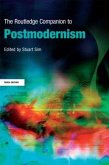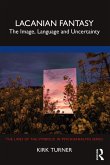'One of the major works of the twentieth century is finally available in English. This comprehensive translation finally overcomes one of the great divisions within the world of reason; an occasion to revisit Madness and Civilization as it was written.' - Paul Rabinow, University of California, Berkeley, USA
'Now, at last, English speaking readers can have access to the depth of scholarship that underpins Foucault's analysis: I have no doubt that this long awaited translation will have a transformative effect on a new generation of readers.' - Nikolas Rose, London School of Economics, UK
'...we are in the presence of a principal thesis that is truly original, by a man whose personality, whose intellectual "dynamism", whose talent for exposition all qualify him for high education' - Henri Gouhier, Principal Examiner of Foucault's Thesis
' ... it returns a fragment of 'nature' to history and transforms madness, something we take to be a medieval phenomenon, into a phenomenon of civilization.' - Roland Barthes
'Without a shadow of a doubt, the most original, influential and controversial text in this field during the last forty years. It remains as challenging now as on first publication. Its insights have still not been fully appreciated and absorbed.' - Roy Porter
'This is quite an exceptional book of very high calibre - brilliantly written, intellectually rigorous, and with a thesis that thoroughly shakes the assumptions of traditional psychiatry.' - R.D. Laing
'Extraordinary...rich and insistent, and almost unreasonable in its necessary repetitions.' - Maurice Blanchot
'This magnificent book...requires a mind that is capable of being in turn a historian, a philosopher, a psychologist, and a sociologist-never simply one of these...This is not a method that could be offered as an example; it is not within the reach of just anybody. Something more than talent is necessary.' - Fernand Braudel, Annales
'I have just finished reading your great book...You are a real explorer.' - Gaston Bachelard, in a letter to Michel Foucault
'Scarcely any philosopher working on the history of philosophy, or historian working on the history of institutions, social science or sexuality can avoid confronting the challenge of Foucault's books.' - Michael Ignatieff, Times Literary Supplement
'Now, at last, English speaking readers can have access to the depth of scholarship that underpins Foucault's analysis: I have no doubt that this long awaited translation will have a transformative effect on a new generation of readers.' - Nikolas Rose, London School of Economics, UK
'...we are in the presence of a principal thesis that is truly original, by a man whose personality, whose intellectual "dynamism", whose talent for exposition all qualify him for high education' - Henri Gouhier, Principal Examiner of Foucault's Thesis
' ... it returns a fragment of 'nature' to history and transforms madness, something we take to be a medieval phenomenon, into a phenomenon of civilization.' - Roland Barthes
'Without a shadow of a doubt, the most original, influential and controversial text in this field during the last forty years. It remains as challenging now as on first publication. Its insights have still not been fully appreciated and absorbed.' - Roy Porter
'This is quite an exceptional book of very high calibre - brilliantly written, intellectually rigorous, and with a thesis that thoroughly shakes the assumptions of traditional psychiatry.' - R.D. Laing
'Extraordinary...rich and insistent, and almost unreasonable in its necessary repetitions.' - Maurice Blanchot
'This magnificent book...requires a mind that is capable of being in turn a historian, a philosopher, a psychologist, and a sociologist-never simply one of these...This is not a method that could be offered as an example; it is not within the reach of just anybody. Something more than talent is necessary.' - Fernand Braudel, Annales
'I have just finished reading your great book...You are a real explorer.' - Gaston Bachelard, in a letter to Michel Foucault
'Scarcely any philosopher working on the history of philosophy, or historian working on the history of institutions, social science or sexuality can avoid confronting the challenge of Foucault's books.' - Michael Ignatieff, Times Literary Supplement








